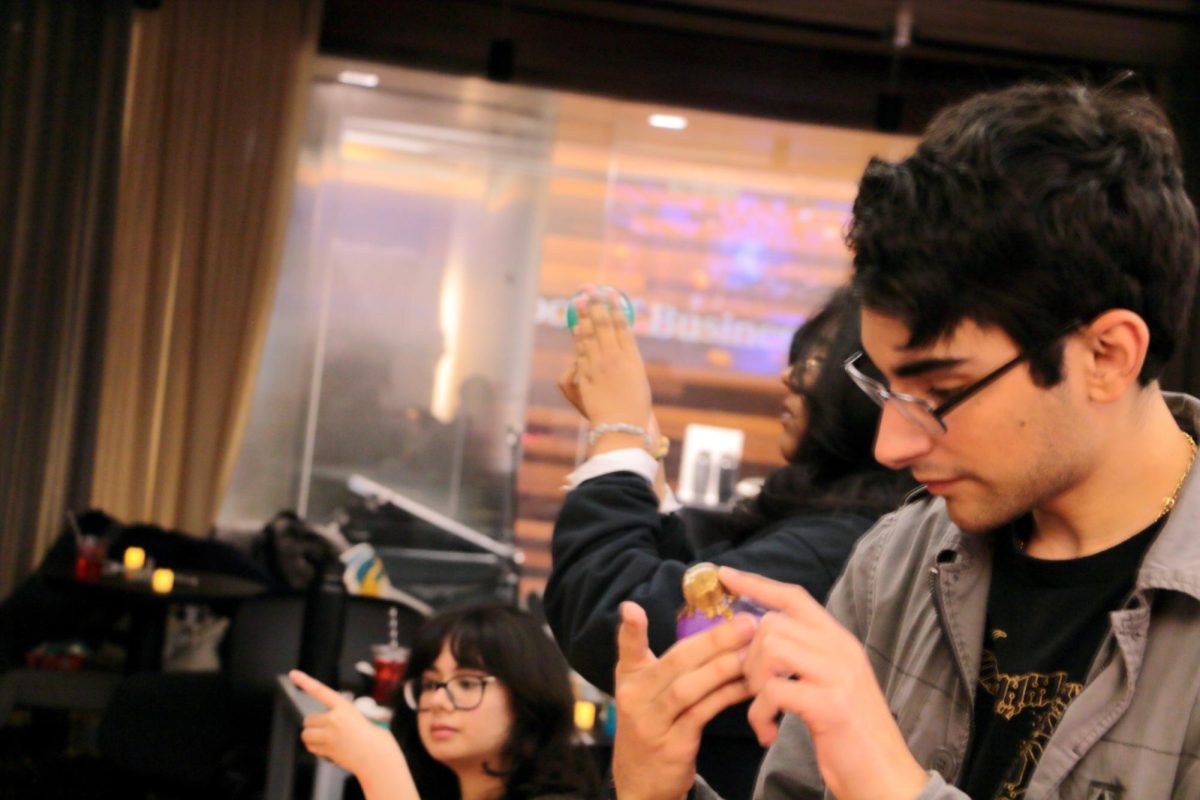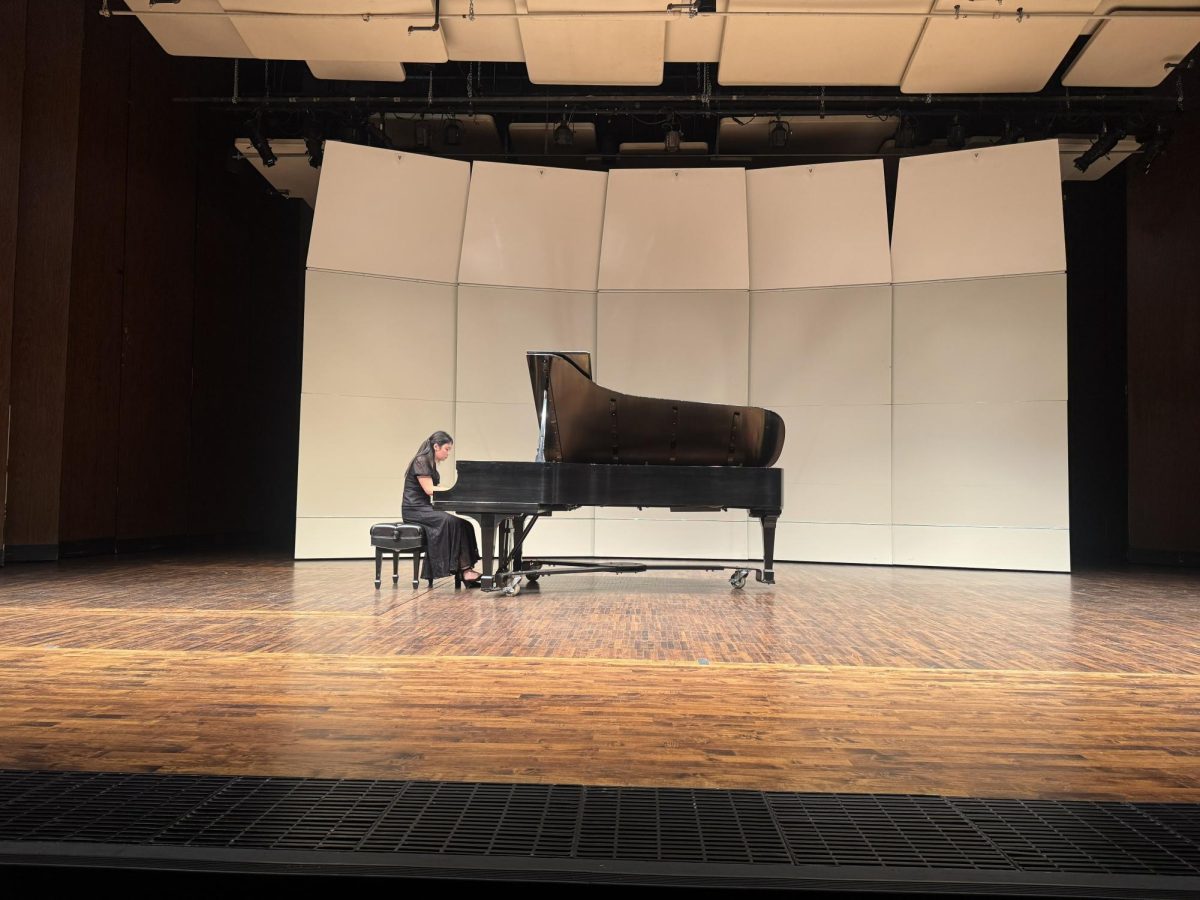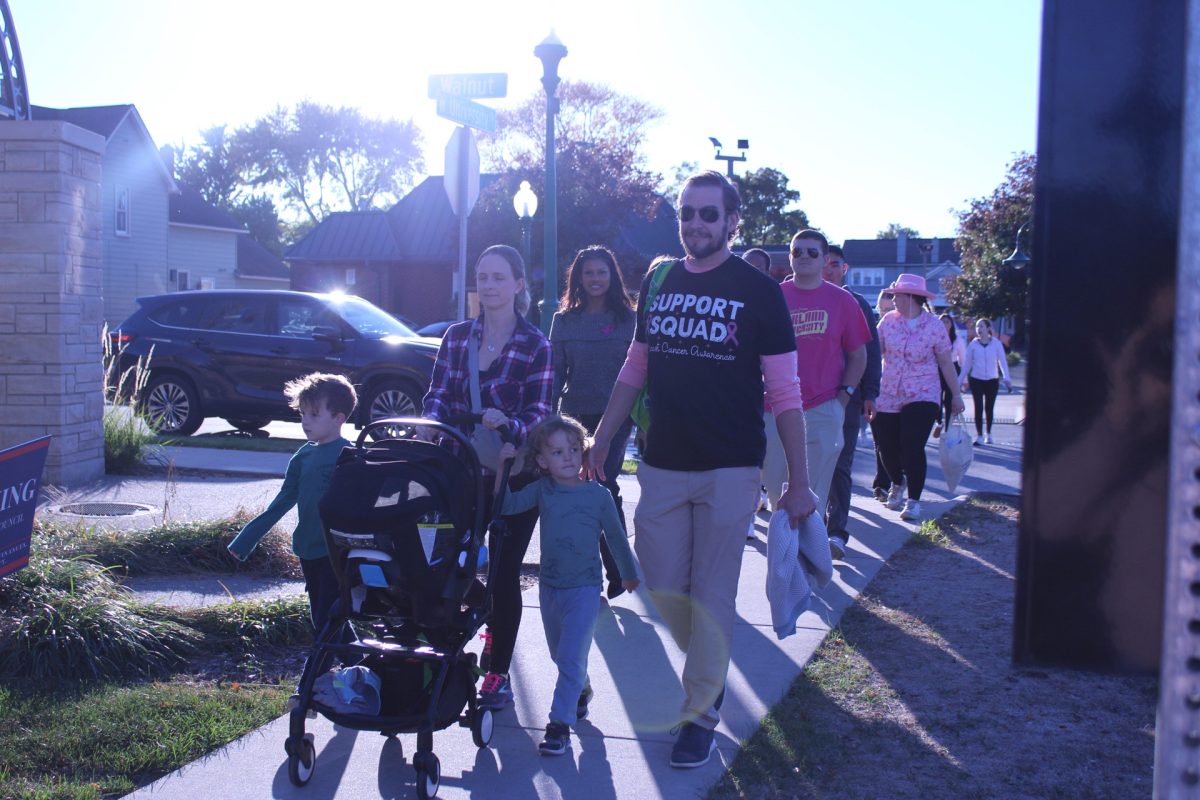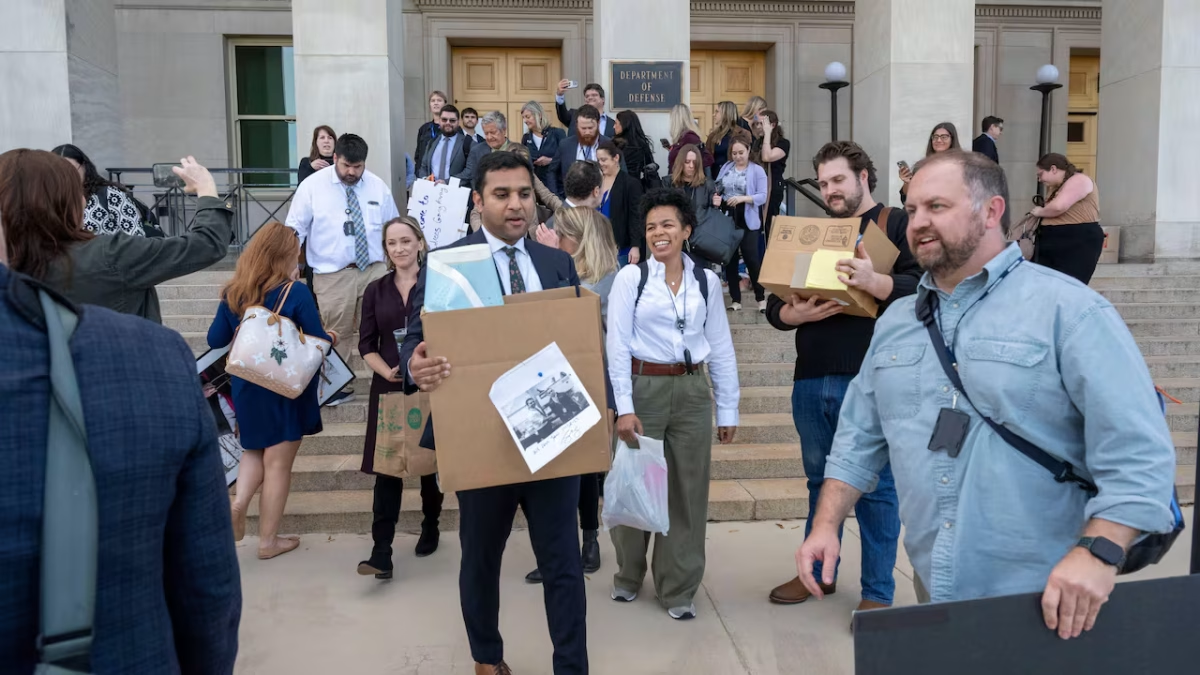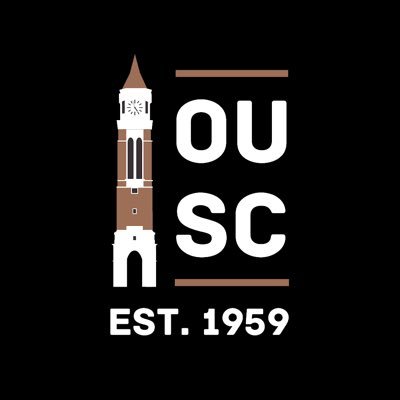
On March 27, Oakland University Student Congress (OUSC) hosted a debate for the upcoming election. There are three presidential slates, each of which has a vice-presidential candidate.
Nia Matthews is the vice-presidential candidate for the Johnson-Matthews slate. Malachi Cattanach is the vice-presidential candidate for the Smith-Cattanach slate. Allison Drzewiecki is the vice-presidential candidate for the Smith-Drzewiecki slate.
Voting will start on March 31 and run until April 4.
“With the rising cost of higher education, what specific initiatives would you propose to make college more affordable, especially for students from low-income backgrounds?”
“I think we should work with the Board of Trustees to go to Lansing and work with our state legislators to increase funding for public universities. I think we also need to revise the Pell Grant to cover more low income families, as well as our school currently is receiving the maximum funding from the state, and our tuition has raised — risen over 4% — so I think that we need efficiency investigations, just because why aren’t we getting the maximum amount of funding, and our tuition is still rising?” Cattanach said.
“So, on the topic of affordability, our slate has been working on reevaluating scholarships and financial aid each year so that it could be up for revision — could get more aid each year, especially with those merit-based scholarships that are stuck with you for four years. We’re working on revising that, we have Ora Pescovitz’s support in this we also are working on continuing to provide free menstrual products for our students here on campus. We have free lower cost Plan B for students. We are working towards lower cost course materials — free to no cost — as well as free test packs for things like LSATs or grad school exams,” Drzewiecki said.
“For me, in my experience going here, tuition has raised, and that’s one of the reasons why I’m currently at home and not living on campus. I think that scholarships is one of the main ways that students are able to afford college, and I think that as someone who has applied to scholarships every single year and have not gotten any new scholarships, that’s something that we definitely need to work on in talking about how we are ensuring that students know what they’re doing ‘wrong,’ and so we know how to get scholarships in the future. I think that working with the financial aid office will help with that, and facilitating workshops would also help raise the awareness of what students need to do to get that money because they deserve it, and I want to know why I’m not getting that money. So, thank you,” Matthews said.
“OUSC aims to support the student body, yet many organizations feel their voices go unheard. How will your slate ensure that all campus organizations have the resources and opportunities they need to thrive?”
“I think that hosting weekly campus committees such as — well, I think that holding campus committees with organizations and with these students’ representatives is the best way to do this. Also hosting monthly town halls, where people can feel heard, and people can voice their concerns and opinions and suggestions is one of the ways that we can make sure that we’re doing everything for them that we can and that is within our power. I think that having the representation and making sure they show up — because I know that’s another thing, making sure everyone is able to show up and attend those meetings is one of the reasons why students don’t — because, you know, it’s not based on their availability. It’s based on the ability of the people who are usually hosting the meeting. And so just making sure that everyone has a voice, and even if it’s not at that meeting, it’s within emails, it’s within discord, it’s within some type of communication way that we are able to hear their voices,” Matthews said.
“Well, I acknowledge that many organizations and students on campus feel that their voice cannot be heard through Student Congress. My plan for increasing their visibility is to encourage and promote better general assemblies, which have liaison positions for every major group on campus. The only issue is, right now they’re not showing up. So, if elected, I hope to promote this — the General Assembly, more where organizations on campus get a vote, they get a say, they get to give their reports to Student Congress, as well as I also would promote just students showing up to general body means. I know it is an issue that students feel like they can’t be heard at general body meetings, and I would work to change some legislation to get that more suitable for students. Thank you,” Drzewiecki said.
“Let’s be honest here, when you hear the name ‘town hall’ as a student, do you really want to go to it? I, to be quite honest, I don’t — that doesn’t sound very interesting or fun. And we care about — J. Cooper and I — care about making every student’s voice feel like they’re heard. And so I think that we need to host, maybe, like weekly or bi-weekly events where we just give a fun name, like ‘Pizza and Policy’ or something like that, and devote part of the OUSC funding to pay for pizza, to bring students in, something fun, and then have like, some sort of anonymous box where they can write their opinion on the bills that are up for voting, and to build to give your opinion on it and or even just speak with us personally. I also think that we need to give Greek life more of a voice and voting rights,” Cattanach said.
“The Student Activities Funding Board (SAFB) is the organization that allocates funding to registered student organizations. In recent months, many changes have been brought to the legislators regarding SAFB. SAFB is currently overseen by the Student Congress, managerially and judicial, judiciary as a form of accountability. How do you envision the relationship management of SAFB and OUSC moving forward with the goals of both student engagement and proper accountability for SAFB?
“Personally, I think that OUSC should relinquish control over SAFB. I think SAFB is not covered — is not like overseen over OUSC. I think that we should have less oversight, but we should have a liaison to make sure that there is accountability, and that’s my point,” Cattanach said.
“So, there’s been a lot of changes proposed regarding Student Congress and SAFB, and while I do support reforms regarding OUSC and SAFB’s relationship, I do not think a full cut-off is necessary or warranted, given the large budget SAFB has control over. Checks and balances in democracy are definitely at risk if that does happen. So, my proposal would be to maybe fix some efficiency issues that SAFB is currently seeing and ensure that Student Congress is acting in students’ best interest — talking to students, making sure that we’re acting with their best interests in mind. But I don’t think a full release of SAFB from Student Congress is necessary,” Drzewiecki said.
“As someone who is currently in SAFB, I have a lot of opinions on this matter that I will choose not to say at this moment. And for professionalism’s sake, I would say me, personally, I would stick to a strictly advisory role, as I do have my opinions about this matter. And, I would say that if they ever needed support from me or from OUSC, I will be more than happy to give it. Thank you,” Matthews said.
“Health and Safety encompasses both physical and mental well-being, which are crucial to student success, both inside and outside of the classroom. How do you plan to support and improve mental health resources and initiatives on campus?”
“I think one of the biggest things that student college has already done is ‘Mindful Mondays,’ I would be very happy to continue that event. But also, I think one of the biggest things on our platform that we want to institute is mental health days off, where we’re working with the Provost Office and the Teachers Professors Union to institute — to institutionalize — mental health days, because mental health is real, and mental health makes people not want to go to class. You know, sometimes I just need a day off. Sometimes I need a break. And I think that having those institutionalized excused absences for mental health is something that is truly needed within our student body. And I think that working with, like I said, the Provost’s Office and the Teachers Union to institutionalize this is probably the best way to go. Thank you,” Matthews said.
“I personally think students need to be made more aware of their mental health services that are here, speaking from my own experience. You know, as a guy, we don’t like to talk about our feelings, and, you know, I thought that we had to bottle them up. And then, I really started to realize that, you know, this crap sucks, life sucks. I think that when you — and the male suicide rate is the highest in the nation right now — I think that another thing that we need to do is we need to maybe, like theme months, like, like, ‘Men’s Mental Health Month,’ ‘Women’s Mental Health Month,’ etc., just to bring more awareness to that mental health is a big problem in our country right now and to campus. I think we also need to look into increasing more resources for mental health services on our campus,” Cattanach said.
“My plan to address mental health on campus would be, first and foremost, to strengthen and bolster what we already have going with the Graham Health Center and the free sessions we have through UWill online service. That came from the Student Congress initiative. I also, as student body Vice President with a close relationship with Student Congress legislature, would want to encourage the members — that have already mentioned in their speeches — passion for mental health crises here on campus, possibly create a committee with them and work towards seeing what issues we have right now on campus, getting student feedback with what they are having trouble with through the Graham Health Center and taking that into account when creating these programs and strengthening them. Thank you,” Drzewiecki said.



